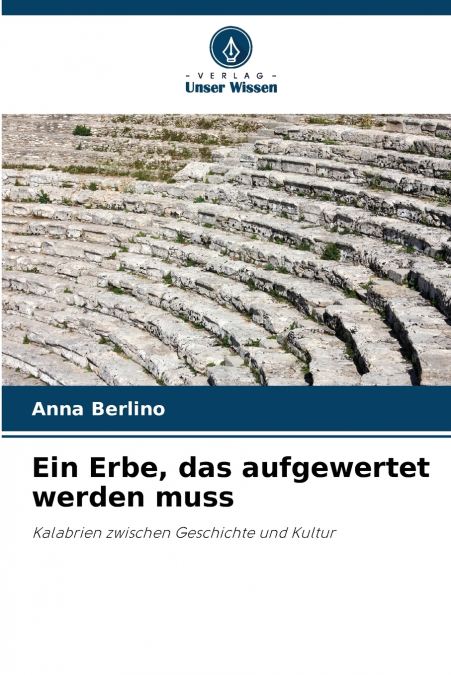
Anna Berlino
Das kulturelle Erbe ist eine Gesamtheit von Denkmälern, Bauwerken, Werken und lokalen Traditionen, die mit dem Territorium verbunden sind, aus dem sie stammen, und stellt somit den Reichtum eines Landes in kultureller und wirtschaftlicher Hinsicht dar, der für die Allgemeinheit bestimmt ist. Der Begriff 'Erbe' hat seine Wurzeln in der lateinischen Sprache: Der Begriff patrimonium bezeichnete nämlich den Reichtum, der vom Familienvater geerbt wurde. Bereits in römischer Zeit wurde das Konzept des Schutzes des Erbes aufgegriffen, und es gab mehrere berühmte Persönlichkeiten, die sich im Laufe der Jahrhunderte mit dieser Aufgabe befassten, darunter Petrarca und Raphael Sanzio. Ziel dieses Bandes ist es, einen kurzen Überblick über einige der archäologischen Stätten in Kalabrien aus prähistorischer, griechischer und römischer Zeit zu geben, um das Bewusstsein für ihre Existenz zu verbreiten und den Einzelnen zu sensibilisieren. Auch der Begriff des Kulturerbes wird in einem weiten Sinne behandelt, wobei von seinem Ursprung ausgegangen wird und kurz die Etappen nachgezeichnet werden, die zur Verabschiedung der gesetzlichen Grundlagen zum Schutz des kulturellen Erbes beigetragen haben.